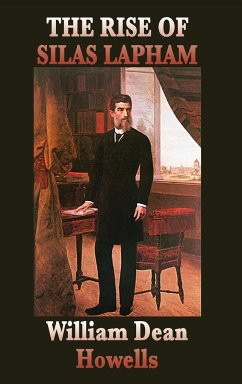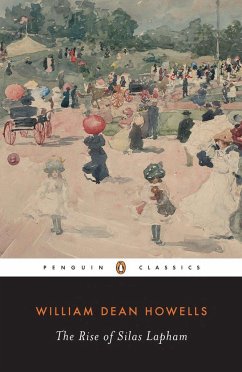
The Rise of Silas Lapham

PAYBACK Punkte
16 °P sammeln!
The Rise of Silas Lapham is about the materialistic rise of Silas Lapham from rags to riches. Silas earns a fortune in the paint business, but he lacks social standards, and morals, which he tries to attain through his daughter's marriage to the aristocratic Corey family, and is successful. Silas's morality does not fail him. He loses his money but is able to make the right moral decision when his partner proposes the unethical selling of the mills.














